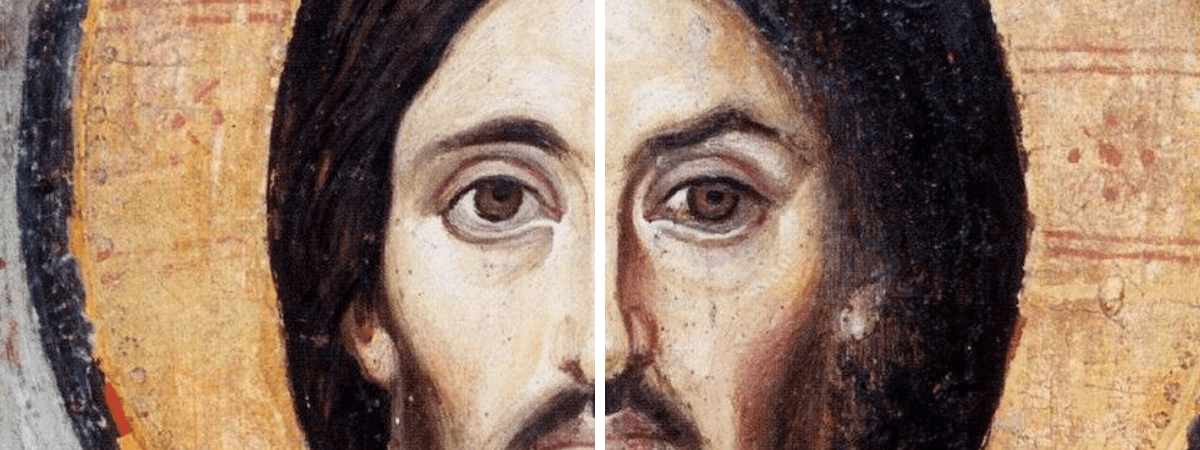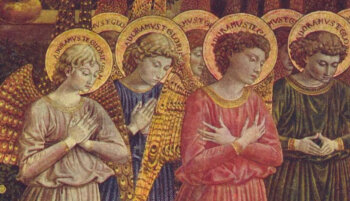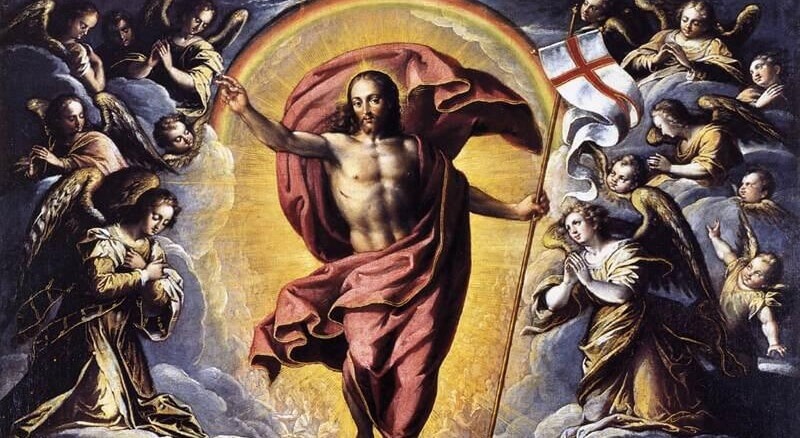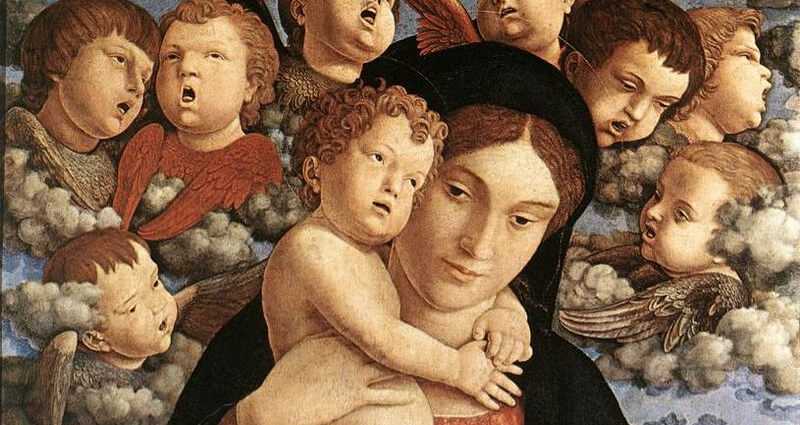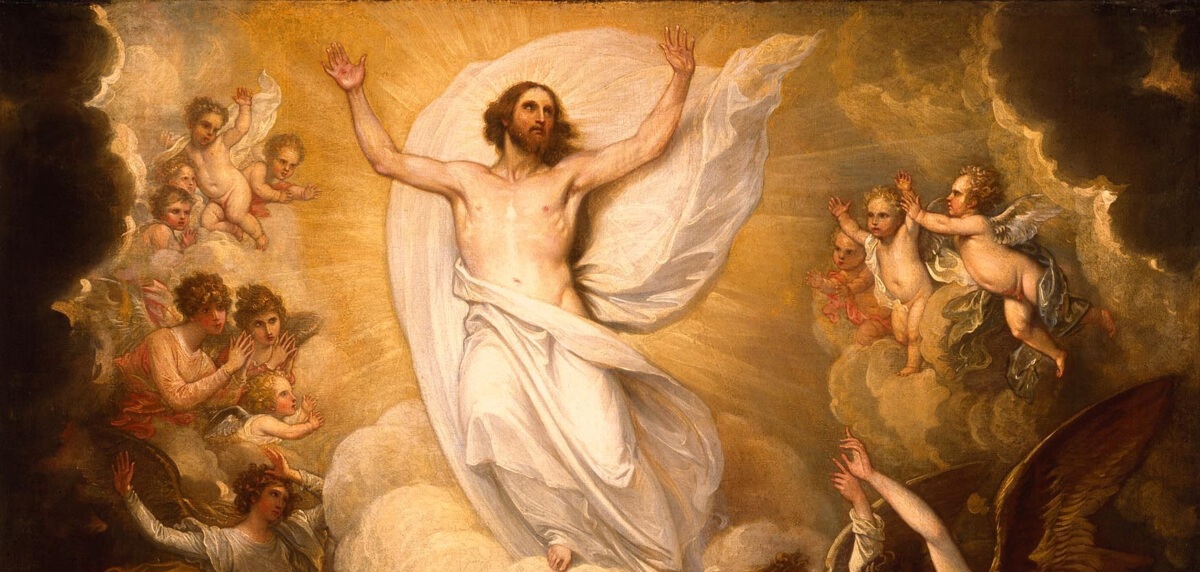
In the Gospel of Luke, the Ascension of Our Lord is described in just four short verses.
Actually, all the descriptions of the Ascension are brief, offering little commentary on the meaning or method of Jesus’ final appearance to the disciples. Perhaps this is one reason why renowned theologian Dr. Scott Hahn calls the Ascension “one of the most underrated feasts in the liturgical year.”
As the Church’s Easter season continues to progress towards the Feast of the Ascension of Our Lord, we are presented with the chance to explore the beautiful and profound implication of Jesus’ return to the Father and the role it plays in our salvation.
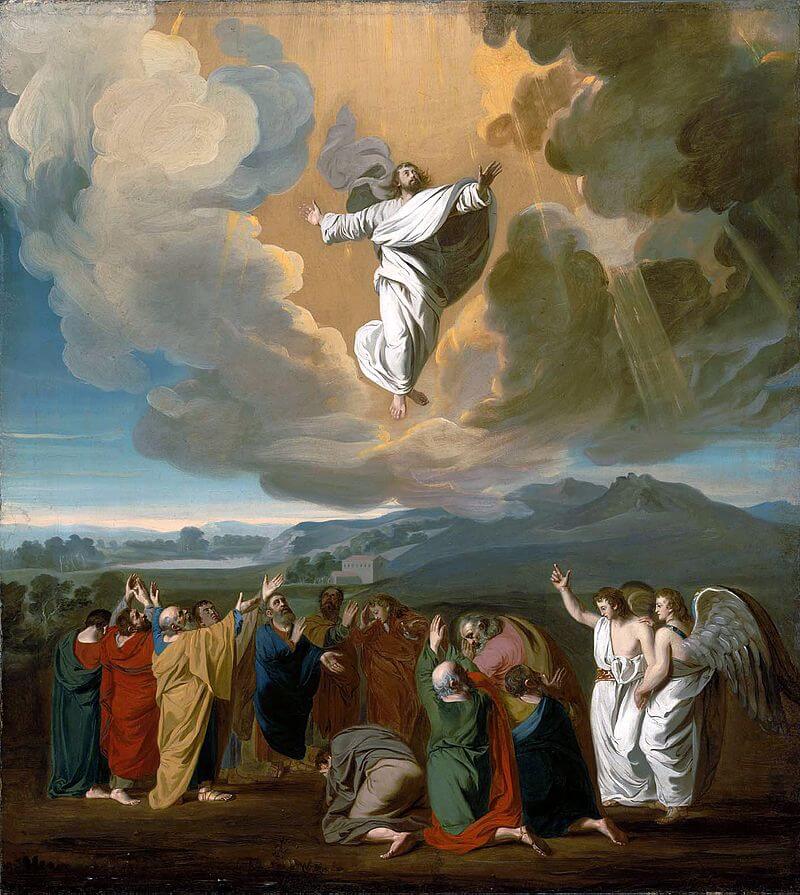
What Are We Celebrating On the Feast of the Ascension?
At its core, the Ascension signifies a transition of the Risen Christ to that of Christ Exalted. Is there really a difference between the two? Yes!
In the forty days after His resurrection, Jesus spent time with His disciples in His resurrected body. While His risen flesh had supernatural abilities—it could pass through physical matter such as locked doors—His glory remained veiled.
It is only when Jesus takes His place at the right hand of the Father in Heaven that He truly becomes exalted, an honor that had long been foretold by the prophets of the Old Testament.
Jesus Himself made allusion to the difference between His risen and ascended flesh when He encountered Mary Magdalene outside the tomb:
Jesus said to her, “Do not hold me, for I have not yet ascended to the Father…”
John 20:17
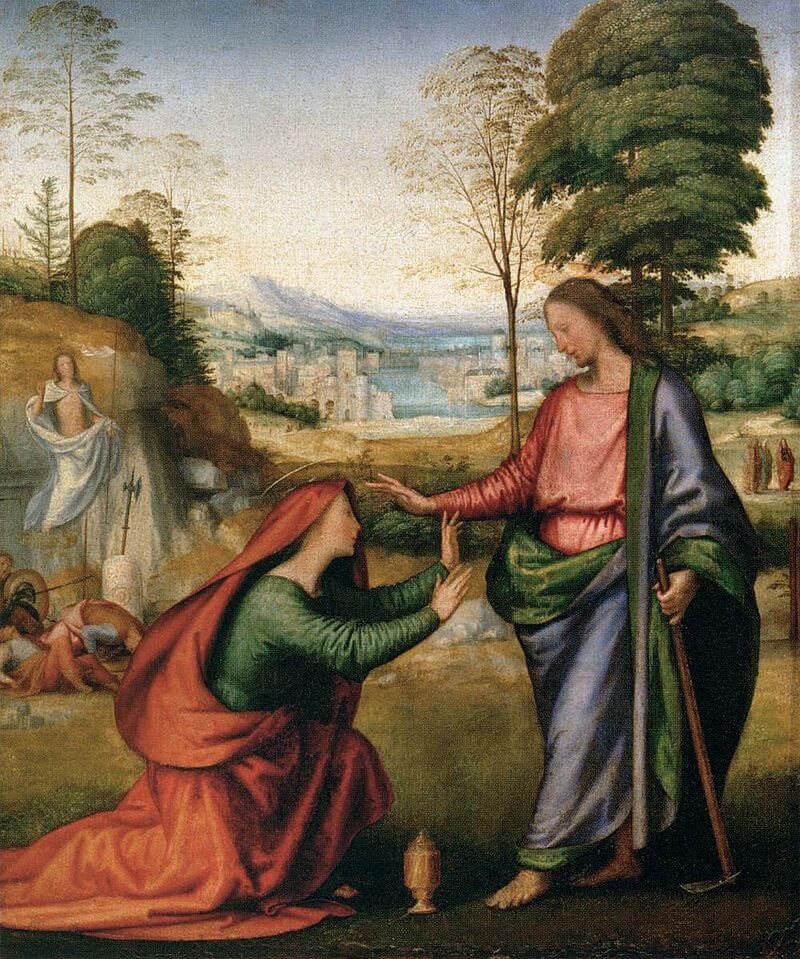
Jesus calls specific attention to the fact that something additional is coming—that all is not yet fulfilled.
This should indicate to us, as well, that the Paschal Mystery of Jesus—God’s plan of salvation as fulfilled through His Son Jesus—does not end with the Resurrection. In fact, the Paschal Mystery contains four key events: Jesus’ Passion, His Death, His Resurrection, and the Ascension. Our Salvation is not complete without the Ascension.
Why? Here is the incredible significance of the Ascension: it is the inauguration of the Messiah’s kingdom. After Jesus receives His throne, He receives dominion over all of creation.
Jesus Himself told us what this dominion entails:
“I, when I am lifted up from the earth, will draw all men to myself.””
John 12:32
What Is Jesus Doing Up in Heaven?
We may wonder what is happening up in heaven. What does Jesus do in His exalted body?
Christ Our Lord is in the presence of God with the marks of his slaying still upon him, his redemptive sacrifice presented everlastingly…They are splendid, those wounds; but wounds they are, pleading irresistibly for the salvation of every one of us.
In heaven, then, Christ presents himself, once slain, now Lord over death, to God for our redemption. In the Mass this breaks through to the altars of earth. The same Christ, through the priest he has empowered, offers the same self once slain now truly present on the altar, to the same God, for the redemption of all. And in this action, all the members of his Body are privileged to have their part.
Frank Sheed, To Know Christ Jesus
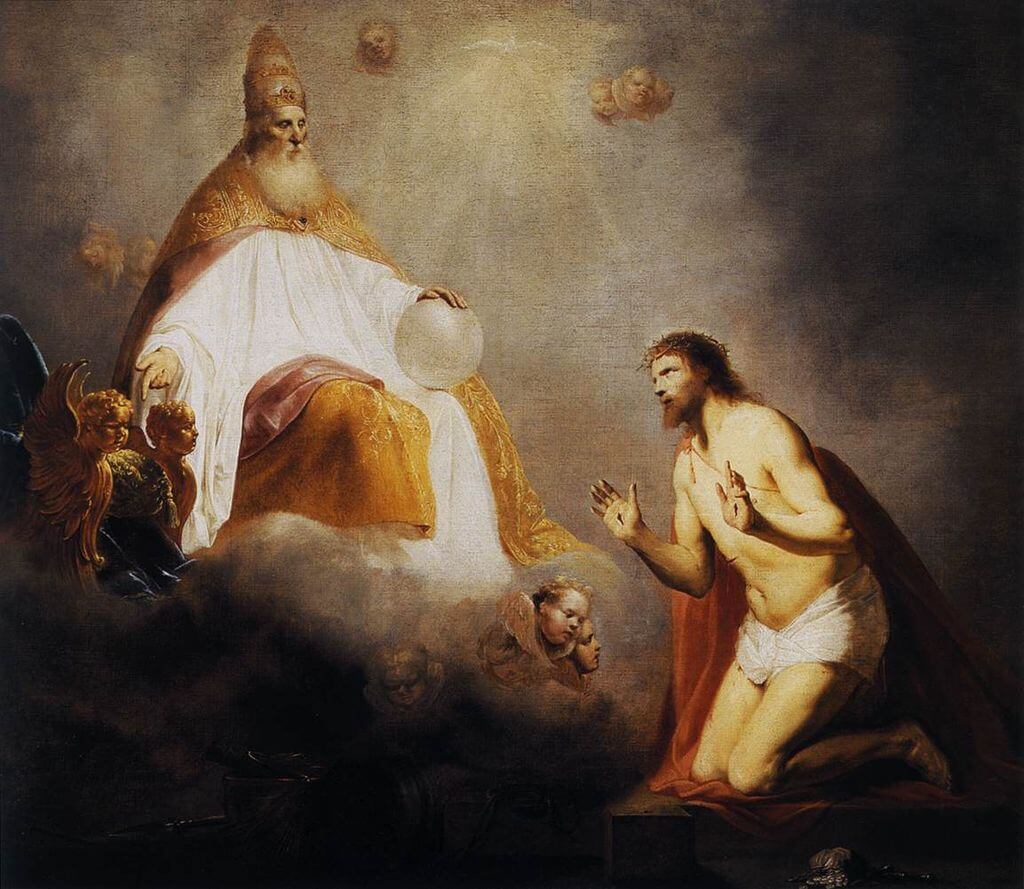
In other words, the Ascension gives us Jesus as our permanent Intercessor. It is only through this event that we may have the hope that one day we too may “go to the Father.”
Just as our priests offer the Holy Sacrifice of the Mass here on earth, interceding for us so that we might receive Christ’s body and blood, Jesus is our Great High Priest interceding for us in heaven.
There [in heaven] Christ permanently exercises his priesthood, for he “always lives to make intercession” for “those who draw near to God through him”. As “high priest of the good things to come” he is the center and the principal actor of the liturgy that honors the Father in heaven.
The Catechism of the Catholic Church, 662
The beauty of this is striking.
Jesus, knowing that our fallen humanity prevented us from entering heaven, allowed Himself to be lifted onto a wooden cross to die a horrific, painful, humiliating death and bring about our redemption.
In a similar way, He was once again lifted up—this time to the Heavenly Kingdom—where He continually intercedes for us, giving us the opportunity to one day enter heaven to be with Him forever.
It is through this lens that we can understand why the temporary farewell of the Ascension was a joyful occasion rather than a tearful goodbye. The climax of the Paschal Mystery should awaken joy in our hearts, just as it did for the Apostles.
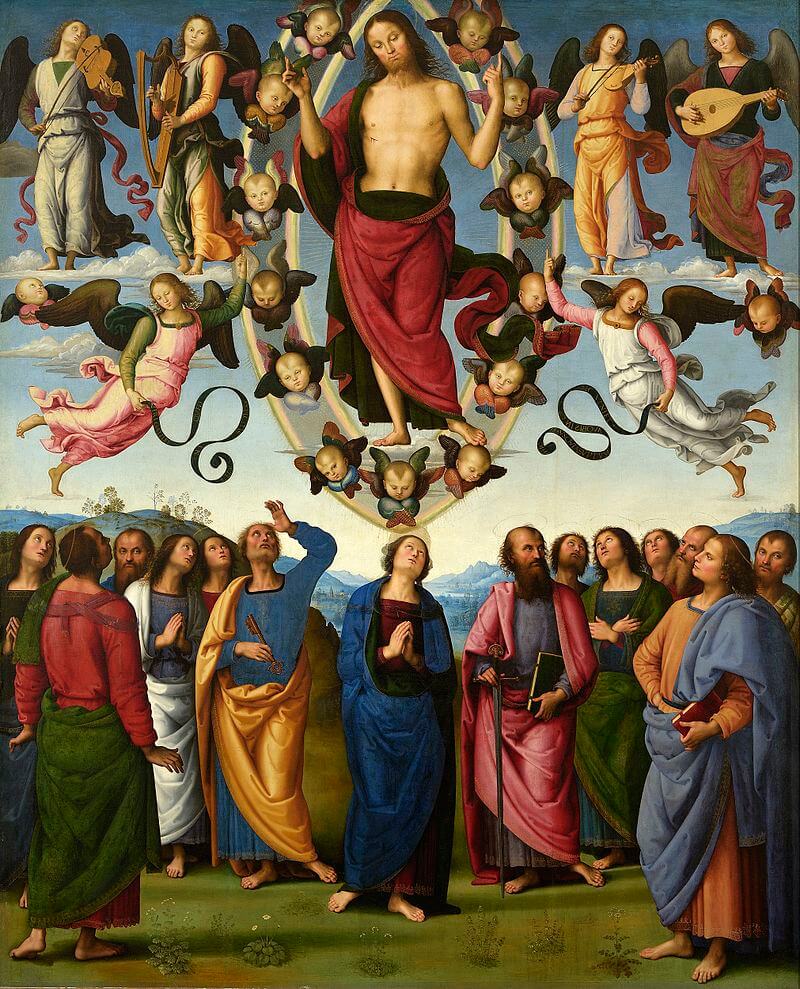
Then he led them out as far as Bethany, and lifting up his hands he blessed them. While he blessed them, he parted from them and was carried up into heaven. And they worshiped him, and returned to Jerusalem with great joy, and were continually in the temple blessing God.
Luke 24:50-53
May we, too, worship with the same joy and fervor as the Apostles, for Jesus has entered the heavenly sanctuary as “high priest of the good things that have come” (Hebrews 9:11).
With God’s plan for salvation fulfilled, let us be joyful and humble, drawing ever nearer to the Messiah Who, by His death, offers everlasting life.
Is the Ascension a feast that mystified you—and was this article helpful in explaining it?
How does this feast impact your understanding of the Faith?
We’d love to hear any of your thoughts in the comments below!

